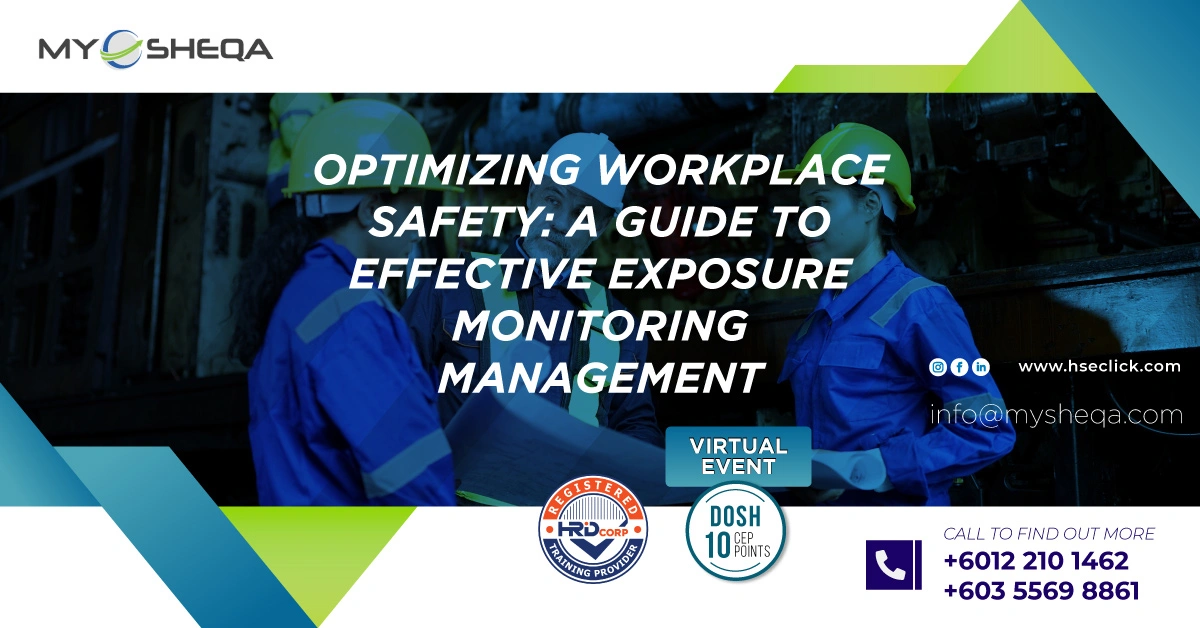10 DOSH CEP Points | 4th & 5th Dec 2024 | HRDCorp Claimable Course
About The Course
The workplace today is becoming more complex. The variety of risks associated with workplace exposure to chemical, physical and biological agents is increasing. Risk assessment and effective workplace exposure monitoring therefore play a vital role. It is the heart of all occupational health and industrial hygiene programs. The use of a systematic method to identify workplace exposures to hazardous agents is a fundamental part of this process. Once a thorough and organized characterization of employee hazard exposures has been completed, the resources for occupational health program can be more effectively managed to reduce employee health risks. This will lead to better focus of required intervention programs including high impact training programs, improved execution of medical surveillance programs, effective purchase and implementation of control measures, and valuable data for program evaluation.
The Department of Occupational Safety and Health (DOSH), Ministry of Human Resource has prescribed Systematic Code of Practice (COP) and Guidelines for conducting various types of workplace exposure monitoring to guide safety and health practitioners. In view of this, the course covers the strategies and practical steps to comply with those requirements whilst sharing the industry experience to set a dynamic workplace exposure monitoring program. The course is also designed to understand how workplace exposure monitoring is adopted to recognise, evaluate and minimise the risk of ill health to workers due to hazardous agents at the workplace. It will address a comprehensive exposure monitoring program that involves a continual process of collecting information, prioritizing controls and gathering follow-up information.
Learning Outcome
At the end of this 2-days program, participants will be able to:
1. To define the requirements for managing occupational exposures associated with statutory laws, code of practice and guidelines by DOSH
2. To explain how the strategies and management program can minimize adverse health effects due to personnel exposure to hazardous agents.
3. To guide participants on systematic occupational exposure management processes that meet industry and legislative requirements
4. To provide information and guidance to OSH practitioners so that they may implement workplace exposures monitoring procedures that include Chemical Health Risk Assessment (CHRA), Chemical Exposure Monitoring, Local Exhaust Ventilation (LEV), Noise Monitoring, Audiometric Test, Indoor Air Quality (IAQ) as well as lighting and heat stress
Check out our ongoing promotion today! Click HERE




